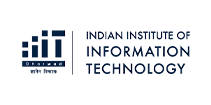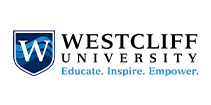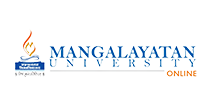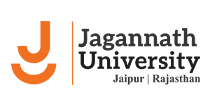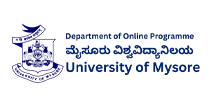Mukherjee Fellowship – Everything You Need to Know
In this time of continuous development and transformation of the country, it is very important to develop important policies, governance and establish strong political leadership to maintain speed and growth. If you are interested in gaining real-time exposure in Indian politics, public policy and governance, then you must explore the Mukherjee Fellowship, an innovative platform for emerging changemakers and leaders.As Indian policies and political structure have become more complex, the Mukherjee Fellowship Program is gaining popularity among young graduates, public policy students, law aspirants, and young professionals who would like to make a difference to the country through informed, effective leadership. This fellowship will provide you an immersive experience through classroom instructions with live fieldwork with members of parliament.
Whether you’re a student pursuing a politics related program or want to establish a career in governance, this fellowship will prepare you with exciting live experiences of policymaking and strategy-making. This blog covers all the necessary information related to the Mukherjee Fellowship and how it will shape your future; and how it is better than other fellowship programs. So, let’s dive-in and get advantage of this fellowship program.
What Is the Mukherjee Fellowship?
The Mukherjee Fellowship is a premium fellowship of one year, that aims to help the young minds in the developing country’s future generation of political leaders and governance experts. This fellowships program provides academic study along with practical exposure, which develops the minds of students to engage in influencing India’s politics and policymaking.This program is controlled by two organizations which play an important role in shaping the future of political leaders. These two organizations are:
- The Policy, Politics and Governance Foundation (PPGF): This organization was established to help the young minds to develop opportunities in public policy and governance.
- Nation First Policy Research Centre (NFPRC): It is a policy think tank institution which collaborates with political makers and stakeholders to hold long-term research on citizen-based policies.
This fellowship prepares the leaders which have the capability of transforming Indian democracy and establish improvement-based policies and decisions. It represents statesmanship, accountability, and youth empowerment. The main aim of Mukherjee Fellowship is to create a group of young people which can make policies dedicated to the public to create harmony and transformation within Indian policy structure. With this fellowship, you will get the opportunity of exploring the political offices, policymaking institutions and campaign situations, allowing you to face the real challenges and government decision making process.
The Mukherjee Fellowship is not just a program, but it's your educational tour, preparing you for becoming the leader of the future generation.
Program Structure
The Mukherjee Fellowship is designed to provide the right combination of theoretical foundations and hands-on exposure so that the learners can gain practical knowledge and empower themselves with the modern approach to making policies according to the dynamics of the country and the world. This fellowship program is for 12 months, which is divided into two major phases to organize the curriculum effectively for the students.These phases are briefly discussed as:
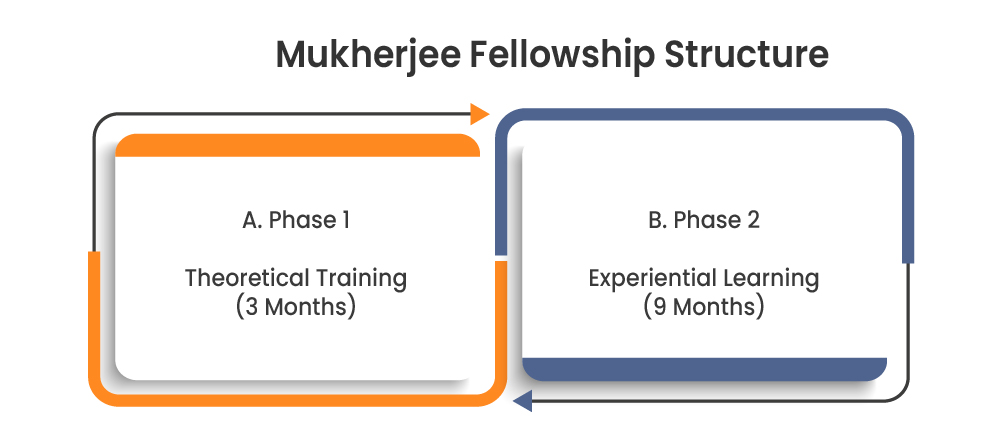
A. Phase 1 – Theoretical Training (3 Months)
The first phase of the fellowship shapes the academic core of the students, which includes the theoretical part of the learning. It involves classroom learning, workshops and interactive sessions, which develops in-depth knowledge related to Indian governance, law, politics and public policy. This provides the opportunity of face-to-face interactions, making it useful for the students to gain basic knowledge for policy making abilities.
The 1st Phase is the Theoretical Learning Module which includes topics like:
- Understanding Indian Society: Analyzing political, social, and cultural frameworks.
- Political Campaigns & Communications 101: Strategies for elections, media relations, and voter engagement
- Understanding Parliamentary Procedures: Insights into legislative processes and policymaking.
- Law and Economics in India: Decoding the intersection of governance, law, and fiscal policies.
B. Phase 2 – Experiential Learning (9 Months)
In these nine months all your theoretical knowledge will meet the practical actions, where you will visit offices of parliament and work on real world situations. You will visit offices of Members of Parliament (MPs), ministers, think tanks and high-ranking political advisors. This phase will take you to the physical ground and provide you the opportunity of practicing on real situations and cases. You will learn the real political workflows and apply your modern approach and theoretical knowledge to create impact. You will be placed throughout India as per political offices or institutions of policymaking.
This is an Experiential Learning Module, which will help you get placed on the offices of leading public figures after completing your training. You will gain hands-on exposure to the following:
- Drafting inputs on bills, parliamentary questions, and policy discussions.
- Managing social media and political communications.
- Assisting in election campaigns and constituency strategy.
- Conducting in-depth policy research and legislative analysis.
- Preparing parliamentary speeches and briefings
- Carrying out policy research and white paper preparation
- Working on constituency-level schemes and welfare programs
- Supporting election campaign planning and grassroots outreach
Why Choose Mukherjee Fellowship?

1. Monthly Stipend – ₹50,000
Mukherjee Fellowships also get a monthly stipend of ₹50,000, which is one of the highest monetary benefits provided by fellowships for political and policy training in India. The stipend motivates the students and ensures they work full-time without worrying about money. This stipend will allow you to concentrate entirely on your studies without worrying about the living costs, study material and other costs related to the fellowship. Here, you can fully focus on study, networking, gaining experience and policy making.
2. Guidance by Senior Political Leaders
The main benefit which you will gain is to get one-on-one training from the senior political leaders, experienced policymakers, and experts in political fields. With them you will gain deep insights into political processes, strategic choice-making and policy development. This mentorship will help you to use your theoretical knowledge in practical situations and build critical leadership skills like negotiation, ethical governance, and communication. With this you will get honest and real feedback, help the fellows to overcome obstacles and make strong connections in political and policy communities.
3. Certification of Completion
At the successful completion of a year-long fellowship, you will be awarded a formal Certificate of Completion that will be recognized as an important credential. The certificate serves as a confirmation of your dedication, skills learned, and applied experience developed in the areas of politics and public policy. It immensely supports your profile when you seek competitive positions in government institutions, policy think tanks, non-profit foundations, and political consultancies. In addition, it is acknowledged by schools and can be an added advantage which will support you to advanced studies like Masters in Public Policy (MPP), Political Science, or similar fields at leading graduate schools around the world.
4. Placement Support & Networking
The Mukherjee Fellowship provides strong placement support and extensive networking opportunities created to facilitate your smooth entry into meaningful careers. You are provided with an active alumni network of professionals who have gone on to build successful careers in various fields of law, policymaking, and governance. The program provides opportunities for career development through discussions, resume-building and interview classes, and networking opportunities with policymakers, government officials, and private sector professionals who are engaged in political consulting work. This fellowship will directly help you in getting jobs like policy analysts, government advisers, campaign managers, or political strategy firm consultants once you finish the fellowship.
5. Legislative & Governance Exposure
The Mukherjee Fellowship gives direct exposure to legislative activities and governance structures. You will have to work directly with Members of Parliament (MPs), ministries of government, parliamentary committees, or top think tanks that conduct public policy research. You will experience hands-on engagement involving activities such as writing parliamentary speeches, policy analysis, field work, campaign support for elections, and attending sessions of strategy development. Such interactive experiences allow you to learn the dos and don’ts of governance from practice rather than theory. Through direct participation in high-impact political activity, fellows acquire irreplaceable experience that equips them to become future leaders in public service.
Eligibility Criteria: Who Can Apply for the Mukherjee Fellowship?
The Mukherjee Fellowship is meant to focus and develop India's future political and policy leaders. The program is very competitive and demanding, yet the eligibility criteria are made to be adaptive so that applications can come from a broad range of disciplines and locations. The following is the in-depth knowledge related to the Mukherjee Fellowship program:1. Age Limit
The applicant should be below the age of 25 when applying. Particularly, only individuals born on or after July 1, 2000, are eligible.
The fellowship focuses on youth leadership and identifies those who can join the career trajectory early to pursue careers in public service, politics, and governance.
2. Nationality
Only Indian citizens are eligible for the fellowship. You will need a valid proof of Indian citizenship (like an Aadhaar card, passport, or voter ID) and submit it during the application process. NRIs or OCI holders cannot apply at this level.
3. Educational Qualification
Applicants can be either:
Final-year undergraduate students,
OR
Graduates (B.A/B.Sc./BCA/BBA graduates) in any stream.
There is no restriction on the academic stream, which is an indicator of the fellowship's cross-disciplinary approach to political and policy leadership. Students from recognized Indian or international institutions (approved by AIU/UGC) are eligible.
Academic & Professional Background
The Mukherjee Fellowship program encourages students from every professional background, making it accessible for everyone. There is no requirement of prior political or policy background.A good interest in governance, policymaking, political strategy, or public service, however, will be eligible and considered at the time of selection.
Skills Gained During the Fellowship
Through the Mukherjee Fellowship, fellows build relevant, practical and useful skills. This is what one must have to make a career in politics, as well as governance or public policy.| Skills | Description |
|---|---|
| Public Speaking and Policy Writing | Fellows are taught how to communicate effectively, both verbally and in writing, and present their ideas to an audience. Their work also involves writing policy briefs, speeches and official letters. |
| Political Communication and Media Strategy | The fellows are taught how to handle political messaging through this fellowship. They do social media packages, campaign messages, and leadership and political communications. |
| Legislative Research and Constituency Mapping | The fellows gain skills in studying laws, following parliamentary discussions, and researching matters of concern. They also assist leaders in planning and outreach at the constituency level. |
| Leadership, Problem-Solving, and Teamwork | The fellowship trains fellows to handle situations, address real problems, and work effectively in small teams. They also operate under pressure, manage various tasks and own projects. |
Application Process & Timeline (2025–26 Cycle)
The application process for the Mukherjee Fellowship 2025-26 cycle is very straightforward and completely online. It contains some steps, in which candidates will be examined on the grounds of interest, competences and knowledge of policy or politics.Key Dates
- Application Opens: May 26, 2025
- Application Deadline: June 22, 2025
- Fellowship Begins: July 17, 2025
Stages for Selection Process

1. Online Application
Interested applicants are supposed to submit an online application. This includes:
- Basic personal information
- Uploading a CV or resume
- Personal Identities
The candidates are expected to take a short test or a written task, which examines their writing ability, analytical skills, and understanding of policy.
3. Final Interview
There is a short list of candidates, followed by an interview with the program directors (online or offline). In this round, the attention is paid to:
- Reason/motivation behind becoming a fellowship member.
- Previous experience in leadership
- Communication and thinking clarity
Individuals who excel in the above-mentioned steps are issued an offer letter. Successful fellows will be required to acknowledge joining procedures before the joining date.
What to Expect as a Mukherjee Fellowship Student?
The Mukherjee Fellowship involves classroom learning, hands-on work experience, and engagement with leaders in the political field. Each week brings new assignments, activities, and learning experiences that help participants advance in policy and governance.Weekly Responsibilities
Generally, students are expected to work five to six days a week, depending on the office to which they are assigned. They are assigned different project work depending on their placement and start work on important projects. Activities may consist of:
- Writing speeches or notes to MPs or Ministers
- Formation of policy briefs or short research reports
- Enabling constituency-related activities
- Social media post management or digital communication
- Participation in team meetings or visits to the field
Other projects enable individuals to acquire relevant skills and assist in work with the active public. Some of the examples of projects done by past fellows include:
- Budget and parliamentary debate studies
- Campaigning for state elections on social media
- Door-to-door campaign in the country or in the city constituencies
- The education, healthcare and digital governance policy notes
- Composing writing letters, reports or responses to a political leader
Fellows participate in networking events, seminars, workshops, and panel discussions with senior political leaders, journalists, and policy experts. These events combine theory and practice. They are also involved in:
- Ministry or constituency field visits
- Gaining experience on the campaign trail during elections
- Socialization with local police and grassroots workers
The working hours are strict, particularly during periods of parliamentary sessions or election campaigns, and fellows usually work in a high-paced environment. The program is challenging, but it promotes learning by doing, and within several weeks, most of the fellows adapt to it. They are also provided with:
- Peer support and mentor support
- Time to reflect and Learn
- An opportunity to cope with work and develop self-discipline
Mukherjee Fellowship Outcomes and Career Paths

The Mukherjee Fellowship supports the career development of young individuals in the fields of public policy, politics, and governance. The fellows gain access to real-world experience, relevant skills, and guidance that prepare them to excel in various positions upon completing the program.
Work in Political and Government Offices
Fellows assist individual MPs or Ministers and political teams. They help with outreach, policy research, and public speaking. This develops their knowledge of the real-world political and administrative aspects.
Build Strong Research and Field Skills
Fellows help in policy studies, field visitations and constituency assistance. They are taught how to study laws, gather local data, and solve problems that concern the population. This prepares them for roles in governance and public policy.
Start a Career in Consulting or Political Strategy
Following the program, many fellows join consulting firms, political advisory teams, or campaign groups. They engage in online strategy, data research and communication. The fellowship is a pathway for a career in political consultancy.
Step into Advanced Policy Degrees
Other fellows may even pursue master's degrees in public policy, law, or political science. Their applications and profiles are submitted by the fellowship on their behalf. It serves as a gateway to undergraduate and postgraduate studies in leading Indian and international universities.
Stay Connected Through a Strong Alumni Network
Fellows become part of a community that supports alumni who are involved in politics or policy. This community exchanges jobs, recommendations and projects. It could assist fellows to develop beyond the program.
What makes the Mukherjee Fellowship better than others?
The Mukherjee Fellowship targets young Indians with ambitions of working in politics, public policy, and governance. It provides both classroom-based instruction and on-the-ground political experience, as well as individual mentorship. It is one of the most prestigious fellowship programs due to its high stipend and excellent alumni performance.Political, Policy and Leadership Focus
The program equips the fellows with knowledge in three key areas: training in the field of public policy, political strategy, and leadership. It is among the rare fellowships in India that combines all these areas.
Immersive Learning in Real Political Space
The first three months consist of classes, workshops, and guest lectures in Delhi. Following this, the fellows are placed with either MPs, ministers, or policy groups for a nine-month period. This helps them apply the knowledge they have acquired in the real world.
Mentorship and a Stipend of ₹50000
Each fellow receives ₹50,000 per month throughout the period. It is one of the most competitive stipends for any fellowship in public policy and governance. Fellows are also mentored directly by the political leaders.
Certificate & Career Support
NFPRC and PPGF will award a certificate to those fellows who complete the program. Most of them get recommendation letters from their host offices. Members of the program team also assist in placing individuals in political offices, think tanks, and consulting positions.
Alumni in Politics and Policies
All former fellows have been placed with ministers, as well as with MPs, state governments, policy advisors, and campaign teams. Some have proceeded to study in the best institutes in law, public policy and political management.
Strong Peer and Mentor Support System
The alumni network working in the field of politics and governance is expanding within the fellowship. The fellows also remain linked by group activities, partnerships as well as policy programs that enable them to discover opportunities and develop long-term careers.
Differences from Other Fellowships
Some of the major skills that Fellows master includes speech writing, political communication, policy research, constituency mapping and campaign strategy. Such abilities are highly valuable in politics and various service industry roles.
How Does It Compare to Other Fellowships?
| Fellowship | Duration | Focus | Focus | Description |
|---|---|---|---|---|
| Mukherjee Fellowship | 12 Months | Politics & Policy | ₹50,000 | It combines public policy training with real political work |
| LAMP Fellowship | 11 Months | Legislative Research | ₹23,000 | This focuses only on working with one MP on parliamentary research |
| Gandhi Fellowship | 23 Months | Education Leadership | ₹24,500 | It is based in rural areas, works for school and system change |
| India Fellow | 18 Months | Social Development | ₹15,000-22,000 | This involves working with NGOs, mainly in rural development roles |
Conclusion
Don’t just talk politics, if you are truly interested in politics and Indian government policies, then this Mukherjee Fellowship program is the most beneficial and suitable program for you. Apply for this fellowship and gain theoretical as well as practical insights into the world of Indian politics and learn policy making and decision-making abilities. You will get the opportunity of visiting parliament offices and understanding the real office work and developing policymaking abilities.So, if you are a determined individual who wants to transform the policies of India for its own good, then you must consider this Mukherjee Fellowship. Start your journey to become a thoughtful political leader and transform the future generations of political leaders in India.
Frequently Asked Questions
Q1. Can foreign students apply to the Mukherjee Fellowship?No, the fellowship is not available to international students. It is limited to Indian citizens who fulfil both age and educational requirements of the program.
Q2. Do I need a background in political science to be eligible for this application?
No, applicants with any academic background are eligible to apply. The interest in governance and politics matters.
Q3. Is it a residential program?
The classroom phase in Delhi is the only residential one. The fieldwork stage takes place in various locations, depending on the placement.
Q4. Am I allowed to apply even when I am still in college?
Yes, one must meet the age and other eligibility requirements as mentioned, and final-year undergraduate students are also eligible to apply.
Q5. Is the candidate required to have any political experience?
No, the course would be introduced to freshers. The most important things they seek are passion, curiosity, and the desire to learn.
Trending Posts
-
Top 10 In-Demand Courses after BBA for a Successful Career in 2025
-
Top PhD Scholarship and Fellowship Opportunities in India 2025
-
High-Paying Government Jobs After B.Com. You Should Know About
-
Sharda University CDOE: Courses, Admission Process, Tuition Fees
-
Trending and High-Impact MBA Project Topics You Should Consider
-
Decoding CGPA: How to Convert It into Percentage Easily
-
Diploma in 1 Year: Top Courses After 12th to Start Your Career
-
How to Convert Million to Crore? A Simple Calculator Guide
-
Everything You Need to Know About O.P. Jindal University Online Programs
-
UGC-Approved Online and Distance Psychology Programs in India: Top Colleges Listed
-
Top Online MBA Entrance Exams Every Banking Aspirant Should Know About
-
7 Major Changes Introduced by UGC You Need to Know About
-
Is an Online MBA from NMIMS CDOE Worth It?
-
Lovely Professional University (LPU) Online: Benefits, Courses, Tuition Fees, Admission Process
-
How Much Do BCA Graduates Earn? Salary & Career Path Explained






















































